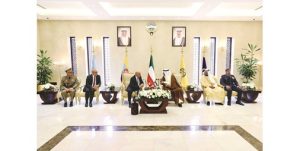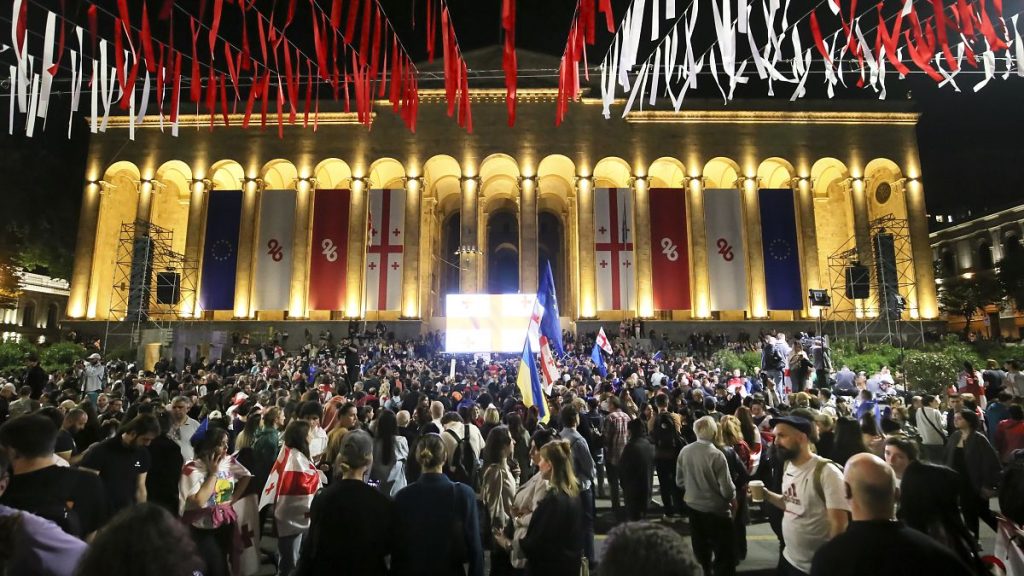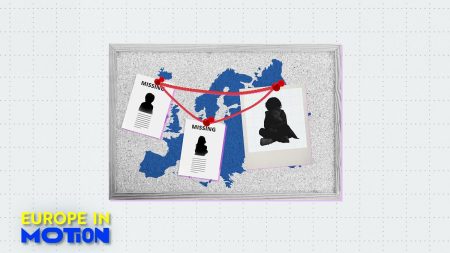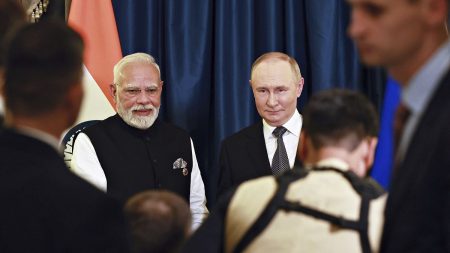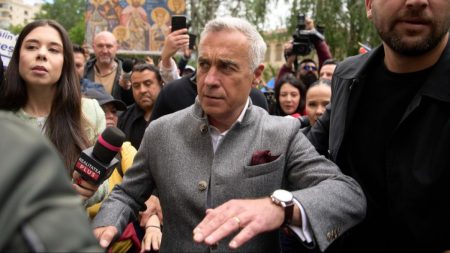Summarize this content to 2000 words in 6 paragraphs in Arabic
Georgia’s “foreign agents” bill, sparking protests and a presidential veto over concerns for media freedom and EU membership aspirations, is defended by the ruling Georgian Dream party but still faces calls for abandonment from the EU and US.
ADVERTISEMENTGeorgia’s Speaker of the Parliament Shalva Papuashvili signed the contentious “foreign agents” bill into law on Monday, sparking significant opposition and weeks of protests from critics who argue it threatens media freedom and jeopardises Georgia’s European Union aspirations.Papuashvili’s endorsement followed the ruling Georgian Dream party’s repeal of President Salome Zourabichvili’s veto in a parliamentary vote last Tuesday. The legislation mandates that media outlets, NGOs, and other nonprofit entities must register as “pursuing the interests of a foreign power” if over 20% of their funding originates from abroad.President Zourabichvili, increasingly at odds with the governing party, had vetoed the bill, accusing it of endangering the nation’s future and obstructing Georgia’s path towards becoming part of the free and democratic world.The government defends the law as necessary to curb the influence of harmful foreign actors allegedly seeking to destabilise the South Caucasus nation of 3.7 million people. Numerous Georgian journalists and activists contend that the bill’s true aim is to stigmatise and restrict critical voices ahead of the parliamentary elections scheduled for October.Opponents have derided the legislation as “the Russian law”, likening it to measures enforced by the Kremlin to suppress independent media, nonprofits, and activists. Critics suggest the bill might be influenced by Moscow to hinder Georgia’s further integration with the EU and the West.Prime Minister Irakli Kobakhidze dismissed these criticisms, calling them “unnecessary emotions that had only an artificial basis”. He urged pragmatism and calm following the law’s enactment.The opposition United National Movement (UNM) reported over the weekend that masked men attacked its central offices in Tbilisi, causing significant damage. They alleged the attackers had ties to the ruling party, prompting the Interior Ministry to launch an investigation into property damage.Compromising its EU membership pathThis legislation mirrors a previous bill that was withdrawn last year following massive street protests. Renewed demonstrations erupted as the bill advanced through parliament this time, leading to clashes with police who deployed tear gas and water cannons.After signing the bill, Papuashvili reiterated its intent to “increase the resistance of Georgia’s political, economic, and social systems to external interference”. He asserted that NGOs and media must adhere to transparency standards if they wish to influence Georgian life with foreign funding.Georgia’s Civil Society Foundation announced plans to challenge the legislation in the constitutional court. The European Union’s foreign policy arm has stated that the law’s adoption negatively impacts Georgia’s EU progress. While the EU granted Georgia candidate status last December, it underscored the need for Tbilisi to implement crucial policy recommendations for its membership bid.US declares travel sanctionsIn response to the parliamentary approval, US Secretary of State Antony Blinken declared travel sanctions on Georgian officials deemed responsible for undermining democracy. He expressed hope that the Georgian government would reverse its course to align with its democratic and Euro-Atlantic aspirations.Opposition party UNM has condemned the bill as part of Georgian Dream’s efforts to align the country with Russia’s sphere of influence, allegations the ruling party vehemently denies. Georgian Dream, founded by billionaire and former PM Bidzina Ivanishvili, has faced scrutiny due to Ivanishvili’s fortune amassed in Russia.Georgia’s relations with Russia have been tumultuous since its independence from the Soviet Union in 1991. In 2008, a brief war with Russia led to Moscow recognising the separatist regions of South Ossetia and Abkhazia as independent states, though most of the world considers them part of Georgia. ADVERTISEMENTDiplomatic ties between Tbilisi and Moscow remain severed, with the regions’ status continuing to strain relations despite recent improvements.
رائح الآن
rewrite this title in Arabic Georgia’s parliament speaker approves controversial ‘Russian law’ amid protests
مقالات ذات صلة
مال واعمال
مواضيع رائجة
النشرة البريدية
اشترك للحصول على اخر الأخبار لحظة بلحظة الى بريدك الإلكتروني.
© 2026 جلوب تايم لاين. جميع الحقوق محفوظة.
